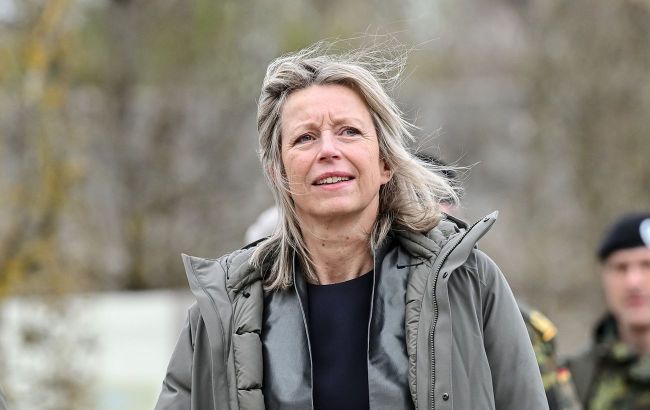Dutch troops extended their stay in Lithuania
 Dutch Minister of Defense Kajsa Ollongren (photo: Getty Images)
Dutch Minister of Defense Kajsa Ollongren (photo: Getty Images)
The Netherlands will continue its participation in NATO's enhanced Forward Presence (eFP) mission in Lithuania until the end of 2026 to deter Russia. Between 270 and 300 Dutch soldiers will be stationed in Lithuania, according to the Dutch Ministry of Defense.
On Monday, Defense Minister Kajsa Ollongren announced this decision to the House of Representatives.
According to her, the mission's goal in Lithuania is to show the population that NATO is ready. "This is an important signal to our allies and Russia. Our soldiers make a crucial contribution here to deterrence and defense. Together we will preserve the security of Europe," Ollongren said.
Enhanced Forward Presence (EFP) of NATO
NATO's program of enhanced Forward Presence with reinforced battalion-sized tactical groups in Eastern European countries has been in place since 2016 in Estonia, Latvia, Lithuania, and Poland.
The Netherlands' participation in the program was already extended in 2021. This decision has now been reiterated, as the Russian threat has since increased even further.
In addition to the Netherlands, the mission also includes Germany (560 soldiers), Belgium (200 soldiers), Norway (140 soldiers), and Czechia (36 soldiers).
Dutch military personnel in Lithuania are represented by the 13th Light Brigade and the 43rd Mechanized Brigade.
Currently, the Netherlands is discussing with Germany the possibility of a permanent deployment of a German brigade in Lithuania.
Russia and NATO
Recently, NATO members expressed concern about Russia's malicious activities on the territory of Alliance countries and promised to respond individually and collectively. This includes Russian disinformation campaigns, coercive actions, cyberattacks, and other hybrid operations in Czechia, Estonia, Germany, Latvia, Lithuania, Poland, and the UK.
The Bundeswehr believes that Russia could be ready for a military attack on NATO members in five to eight years.
President Volodymyr Zelenskyy also considers a war between Russia and NATO possible. In his opinion, if Ukraine does not stand, the Baltic countries could be at risk.
Polish Foreign Minister Radoslaw Sikorski is convinced that a Russian attack on NATO would end in Moscow's defeat.

